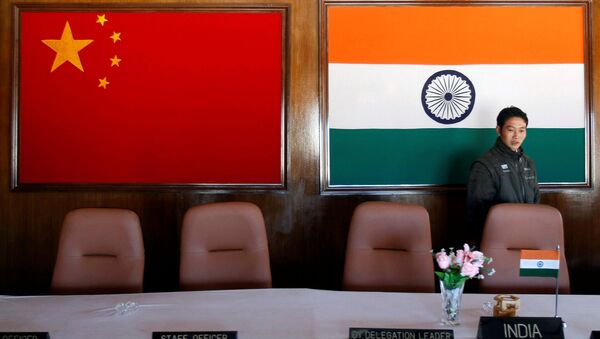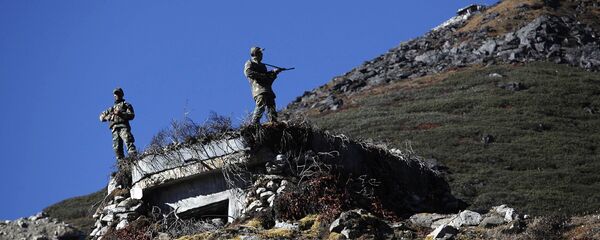NEW DELHI (Sputnik) — The recent statement by India's Ministry of External Affairs claimed that there had been an agreement with China to mutually withdraw troops from Doklam. While China has confirmed that Indian troops had pulled back, the status of its own troops remains ambiguous.
"Chinese troops on the ground have verified it. China continues to exercise sovereignty. China will make adjustments according to the situation. The Chinese side continues to uphold the sovereignty and territorial integrity according to the historical convention," the Press Trust of India quoted Hua Chunying, Chinese foreign ministry, spokesperson.
Indian experts are of the view that the statement by the Ministry of External Affairs is ambiguous to the extent of totally covering up the Indian side of the bargain. They say questions persist over the crisis, particularly over the status of PLA's road building activity over the disputed territory as well as Prime Minister Narendra Modi's attendance at the upcoming BRICS Summit in China.
"The price India paid for Chinese disengagement in New Delhi's carefully worded statement has been elided over. Prime Minister Narendra Modi, therefore, must participate in next month's BRICS meeting to forward a resolution to an issue manufactured by history but made immediate by China. But that in itself is not enough. New Delhi can only seize the diplomatic high ground if it conducts itself in an open and accountable manner. Only that will engender a resolution that will stand the test of time," Dr Deep K. Datta-Ray, Associate Professor, at the O.P. Jindal World University told Sputnik.
Tensions between the Asian giants reached unprecedented levels after June 16 when Bhutan objected to an attempt by Chinese troops to build a road on the Dokalam plateau. Indian troops stationed in Bhutan under a special security arrangement intervened to prevent the Chinese troops.
India said the road construction was unilateral and tantamount to change the status quo and also a security threat to India as Doklam is very close to the Siliguri Corridor, a narrow patch of territory that connects the country to its remote northeastern states.


